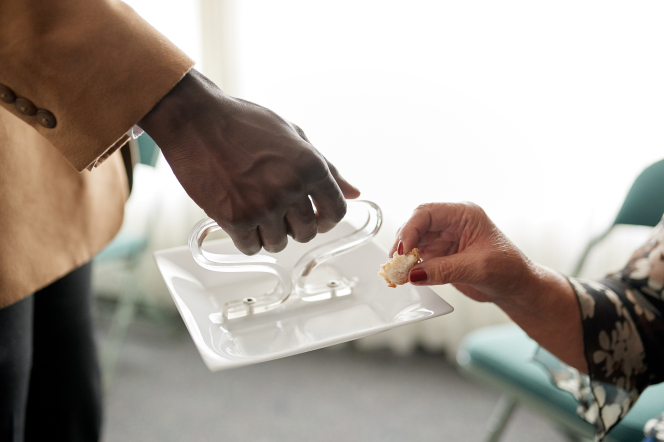5 Things You Might Have Forgotten About the Sacrament
Latter-day Saints gather every Sunday in meetinghouses to partake of the Sacrament. The purpose is to remember Christ and renew sacred covenants. The sacrament has a long history. We have gathered some facts you might have forgotten about this important ordinance.
1. The sacrament changed drastically during the Great Apostasy
On the eve of Christ’s crucifixion, He gathered His apostles together and instituted the Sacrament.
After His crucifixion and the death of his original twelve apostles, many practices within the Church became corrupted and incorrect, including the Sacrament.
According to Richard Lloyd Anderson, “by ignoring major parts of the scriptures, various Christian theologies have either explained away or changed vital covenants and rites still mentioned in the Bible.”
Brother Anderson goes on to teach that “historical records show that the sacrament covenant of remembrance and recommitment was changed to include elaborate practices that tended to produce awed onlookers. Such changes forced individual repentance into nonscriptural channels like scheduled penance and the last rites.”
Because of these false changes that occurred during the Great Apostasy, it was necessary for the sacrament to be included in the truths restored by Joseph Smith.
2. The current sacrament prayers are identical to the Nephite prayers

When Christ visited the Americas in his ministry to the Nephites, He taught them about the sacrament, just as He had done with His apostles in Jerusalem.
Christ sent His disciples to get bread and wine. He then broke the bread into pieces and blessed it. 3 Nephi 18:7 reads, “And this shall ye do in remembrance of my body, which I have shown unto you. And it shall be a testimony unto the Father that ye do always remember me. And if ye do always remember me ye shall have my Spirit to be with you.”
He then commanded the disciples to drink of the wine. Christ says, “And this shall ye always do to those who repent and are baptized in my name; and ye shall do it in remembrance of my blood, which I have shed for you, that ye may witness unto the Father that ye do always remember me. And if ye do always remember me ye shall have my Spirit to be with you” (3 Nephi 18:11).
The language used in the Book of Mormon is identical to that used in the current sacrament prayers found in Doctrine and Covenants 20:77, 79.
3. The sacrament does not have to be bread and water

In the modern-day practices of the Church, it is customary to use bread and water for the sacrament, but if these things are not available other food and drink can be used. In Doctrine and Covenants 27: 2, a revelation given to Joseph Smith by a heavenly messenger, it says:
“For, behold, I say unto you, that it mattereth not what ye shall eat or what ye shall drink when ye partake of the sacrament if it so be that ye do it with an eye single to my glory—remembering unto the Father my body which was laid down for you, and my blood which was shed for the remission of your sins.”
Related: Why I Love to See Latter-day Saints NOT Take the Sacrament
4. Passing the sacrament is an assignment given to Deacons
Deacons, Aaronic Priesthood holders ages 12-13, are given the assignment to pass the sacrament. Bishops hold the Priesthood keys to the sacrament or the authority over the specific ordinance.
“Through the keys of the priesthood, the Church administers ordinances and provides an organization to carry on the work of the Lord in an orderly manner—“Mine house is a house of order, saith the Lord God, and not a house of confusion” (D&C 132:8).”
Theoretically, those holding the keys to the sacrament could assign anyone, Priesthood holder or not, to pass the sacrament as it doctrinally does not require the Priesthood. The assignment, however, has been given to Deacons.
One does have to be ordained a Teacher to prepare the sacrament, and a Priest to bless and officiate at the sacrament table. Depending on the need in the ward, holders of the Melchizedek Priesthood can help with any portion of the ordinance.
5. The sacrament prayers promise blessings

In addition to us renewing our covenants, the sacrament reminds us of the promises the Lord makes if we keep our covenants. We are promised that “we will always have His spirit to be with [us].” The Principles of the Gospel manual teaches that “a person guided by the Spirit will have the knowledge, faith, power, and righteousness to gain eternal life.”
It goes on to remind us, “we do not need to be perfect before partaking of the sacrament, but we must have the spirit of repentance in our hearts. The attitude with which we partake of the sacrament influences our experience with it. If we partake of the sacrament with a pure heart, we receive the promised blessings of the Lord.”


